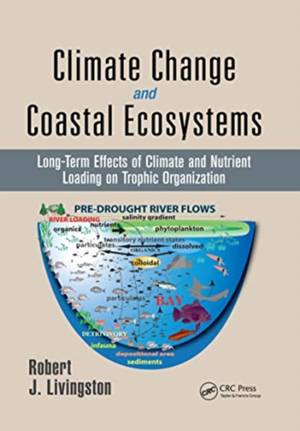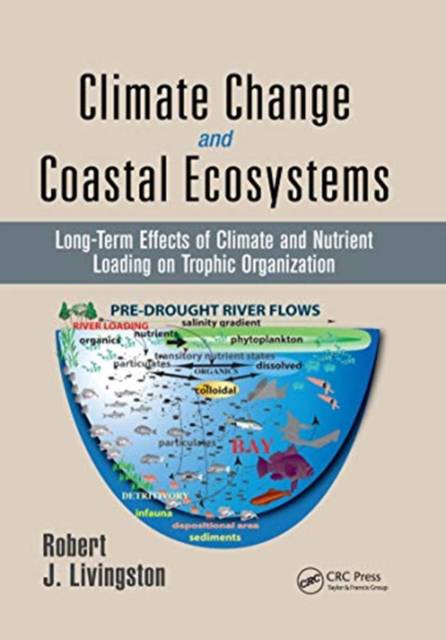
- Retrait gratuit dans votre magasin Club
- 7.000.000 titres dans notre catalogue
- Payer en toute sécurité
- Toujours un magasin près de chez vous
- Retrait gratuit dans votre magasin Club
- 7.000.0000 titres dans notre catalogue
- Payer en toute sécurité
- Toujours un magasin près de chez vous
Climate Change and Coastal Ecosystems
Long-Term Effects of Climate and Nutrient Loading on Trophic Organization
Robert J LivingstonDescription
Produced by a Leading Aquatic Scientist
A narrative account of how estuaries around the world are being altered by human forces and human-induced global climate changes, Climate Change and Coastal Ecosystems: Long-Term Effects of Climate and Nutrient Loading on Trophic Organization chronicles a more than 40-year-old research effort conducted by Dr. Robert J. Livingston and his research team at Florida State University. Designed to evaluate system-level responses to natural and anthropogenic nutrient loading and long-term climate changes, the study focused on the northeast Gulf of Mexico river-bay systems, and concentrated on phytoplankton/benthic macrophyte productivity and associated food web organization. It addressed the changes of food web structure relative to long-term trends of climatological conditions, and was carried out using a combination of field-descriptive and experimental approaches.
Details Climate Change, Climate Change Effects, and Eutrophication
This book includes comparative analyses of how the trophic organization of different river-bay ecosystems responded to variations of both anthropogenic impacts and natural driving factors in space and time. It incorporates a climate database and evaluates the effects of climate change in the region. It also provides insights into the effects of nutrient loading and climate on the trophic organization of coastal systems in other global regions.
- Presents research compiled from consistent field sampling methods and detailed taxonomic identifications over an extended period of study
- Includes the methods and materials that the research team used to access the health and trophic organization of Florida's estuaries
- Provides an up-to-date bibliography of estuarine publications and reports
Based on a longitudinal study of anthropogenic and natural driving factors on river-estuarine systems in the northeast Gulf of Mexico, Climate Change and Coastal Ecosystems: Long-Term Effects of Climate and Nutrient Loading on Trophic Organization is useful as a reference for researchers working on riverine, estuarine, and coastal marine systems.
Spécifications
Parties prenantes
- Auteur(s) :
- Editeur:
Contenu
- Nombre de pages :
- 572
- Langue:
- Anglais
- Collection :
Caractéristiques
- EAN:
- 9780367656393
- Date de parution :
- 30-09-20
- Format:
- Livre broché
- Format numérique:
- Trade paperback (VS)
- Dimensions :
- 178 mm x 254 mm
- Poids :
- 984 g

Les avis
Nous publions uniquement les avis qui respectent les conditions requises. Consultez nos conditions pour les avis.






